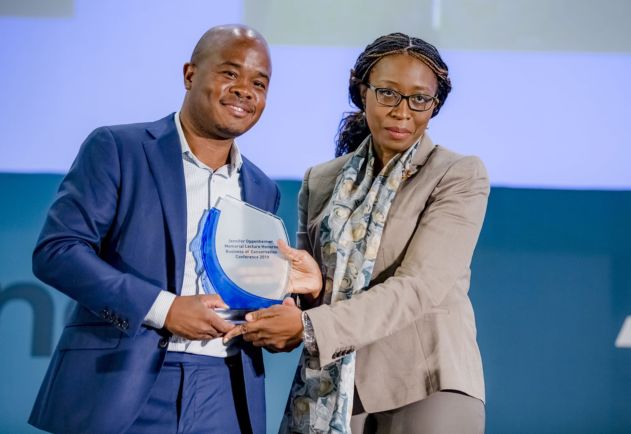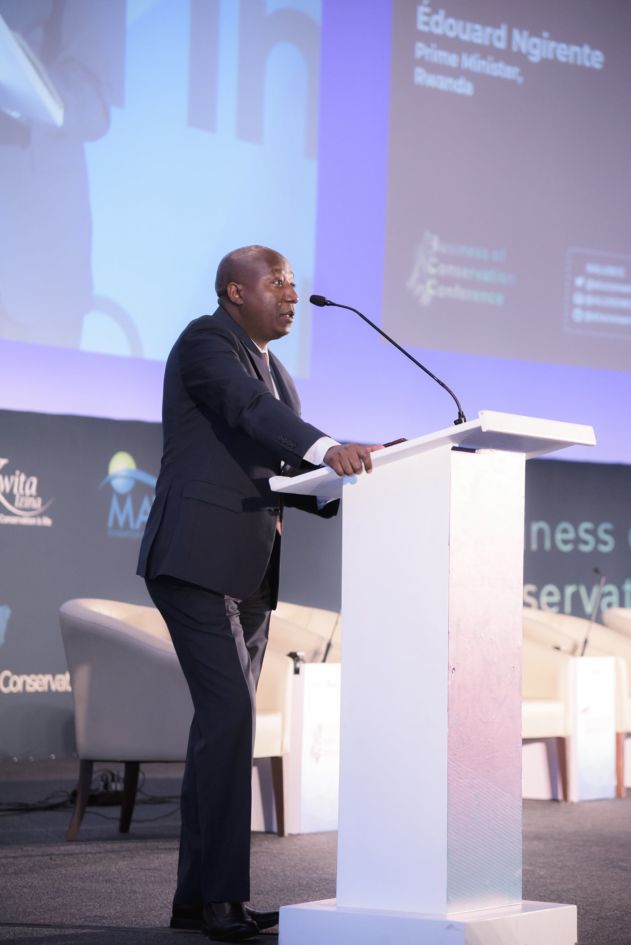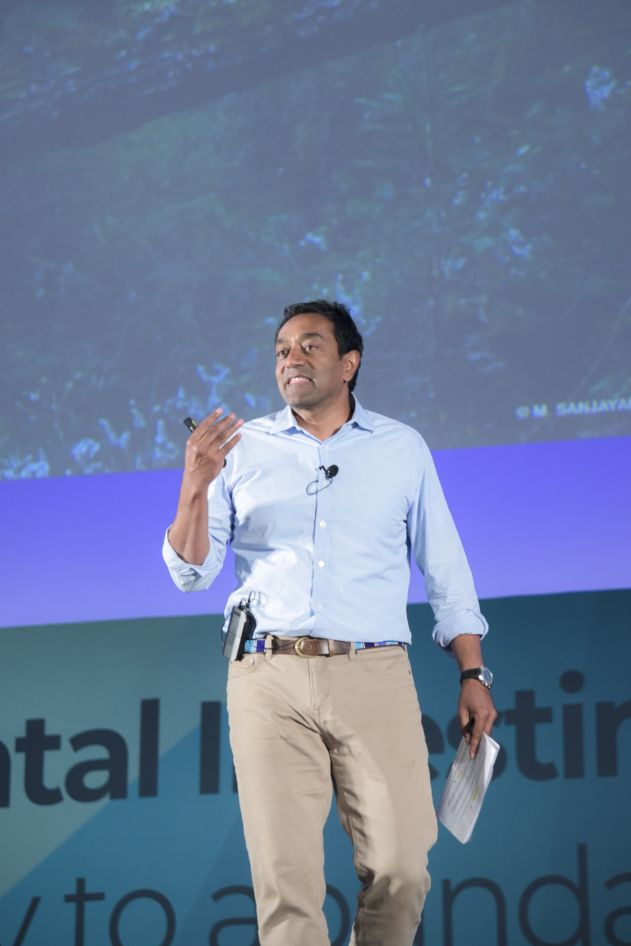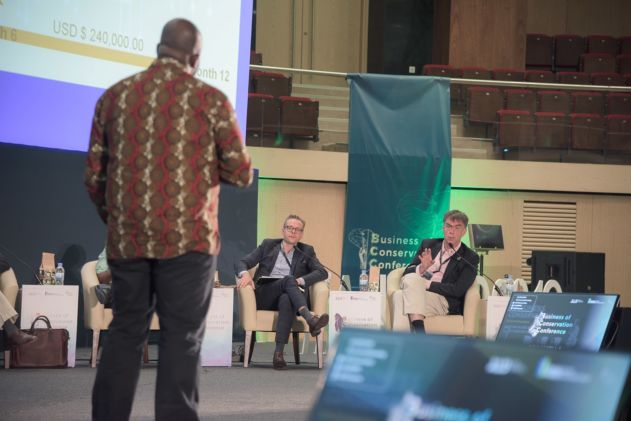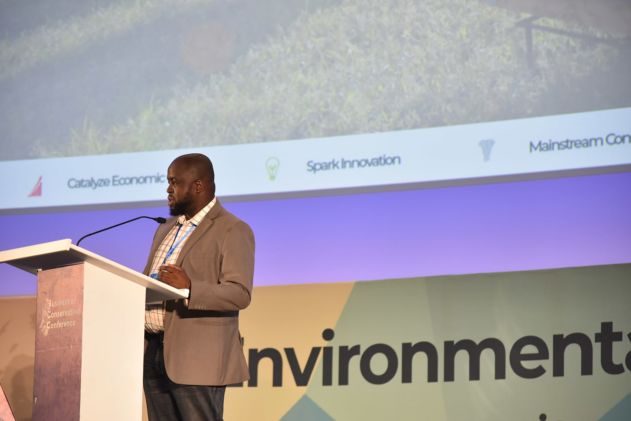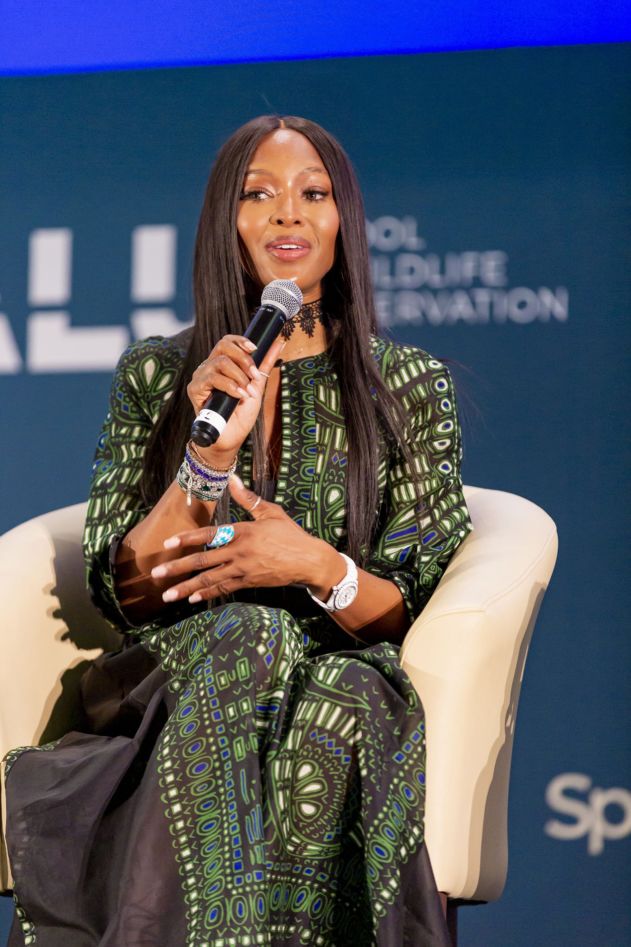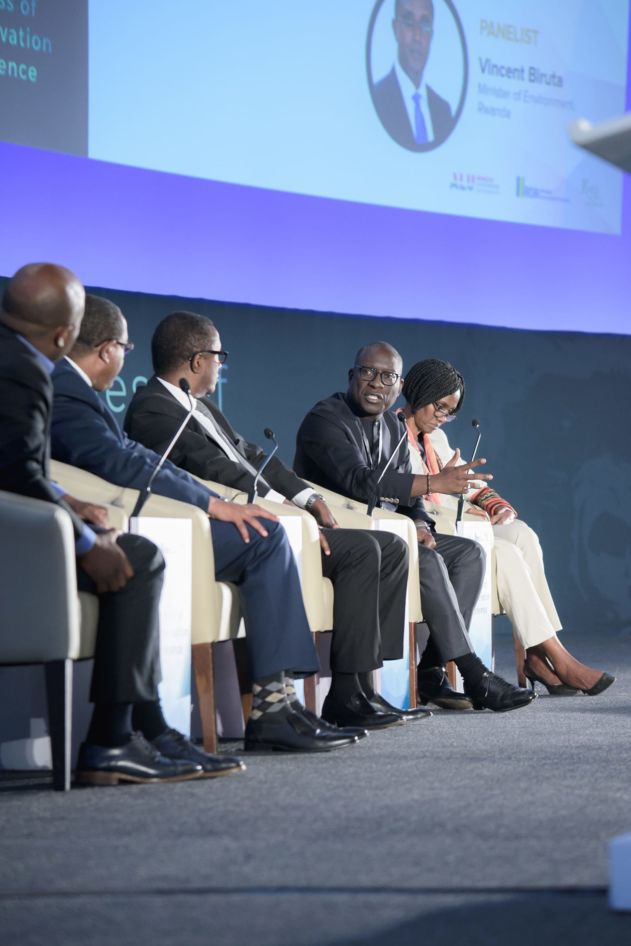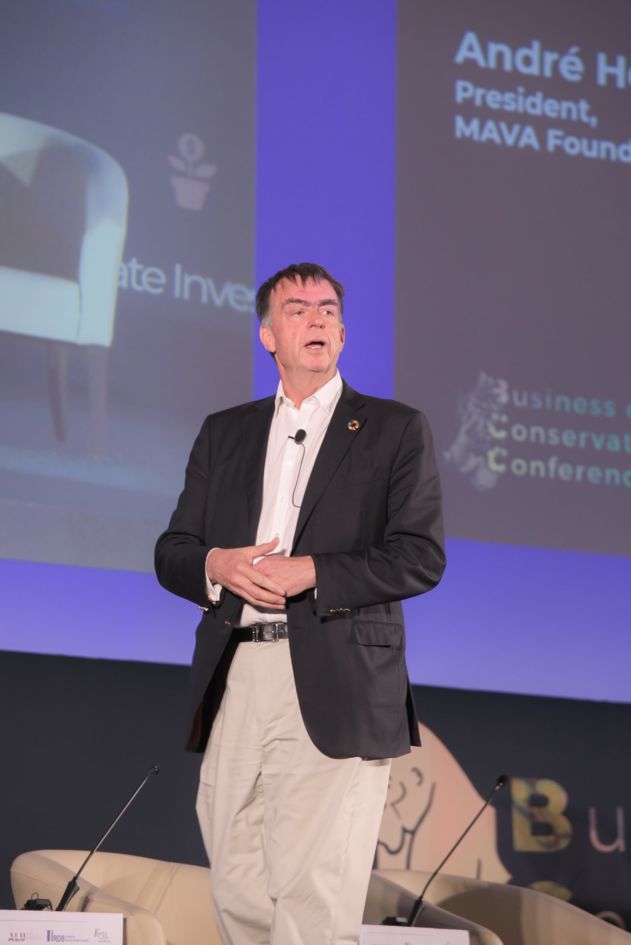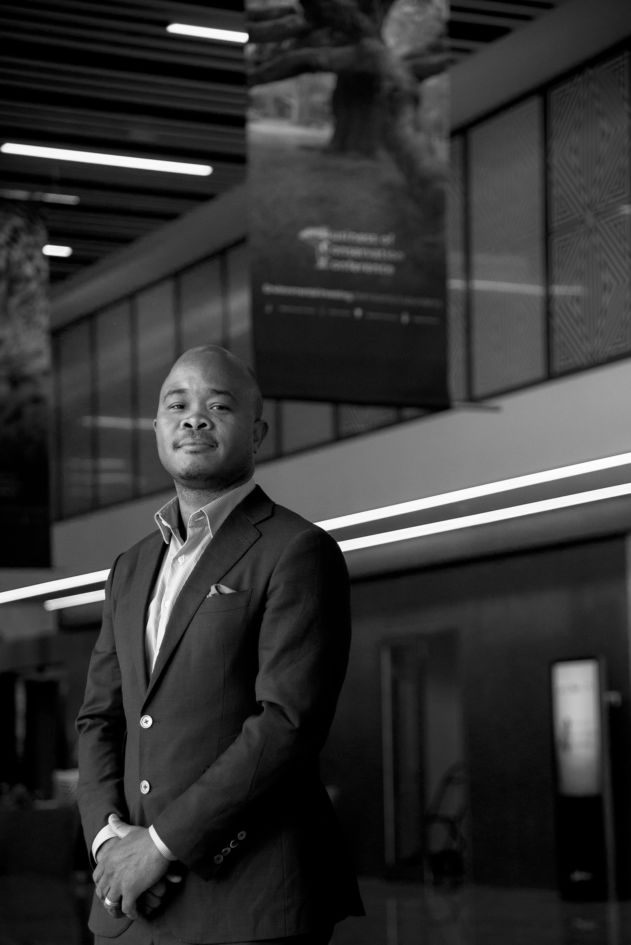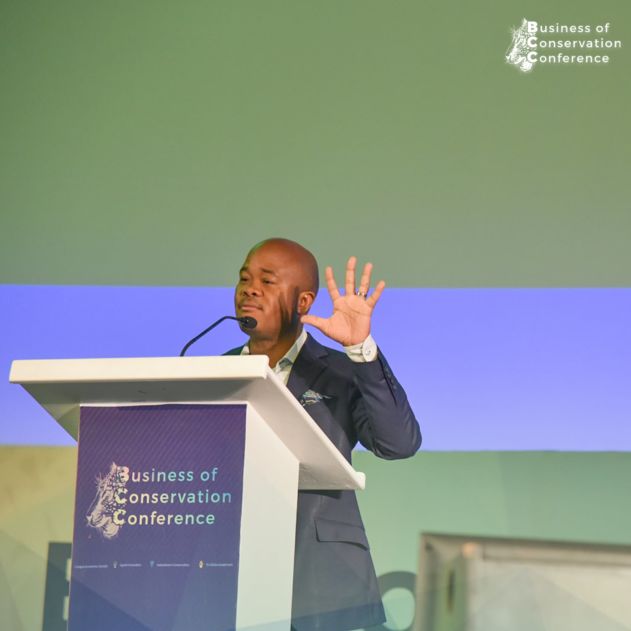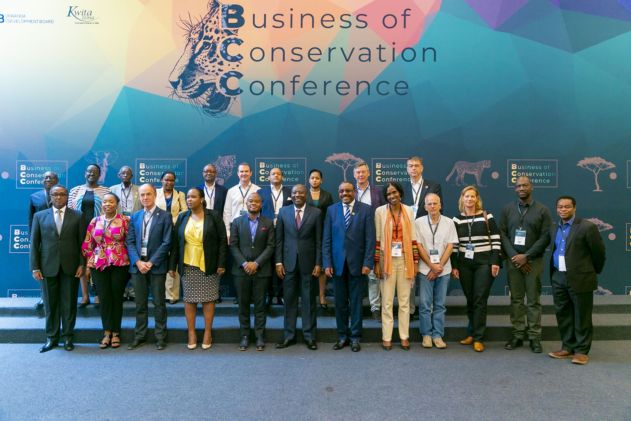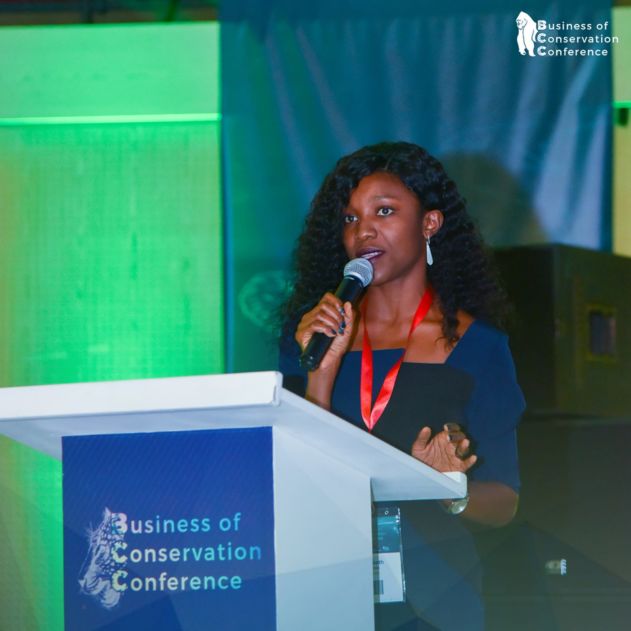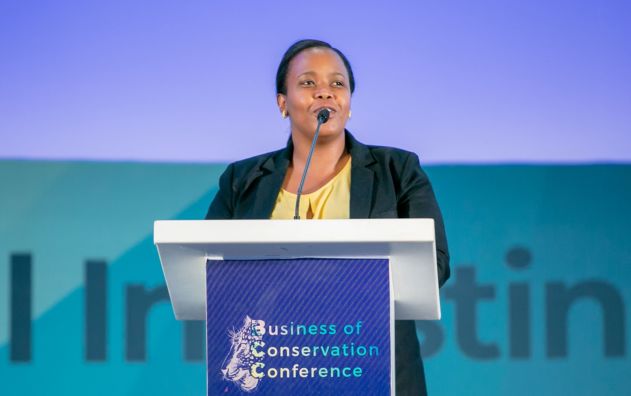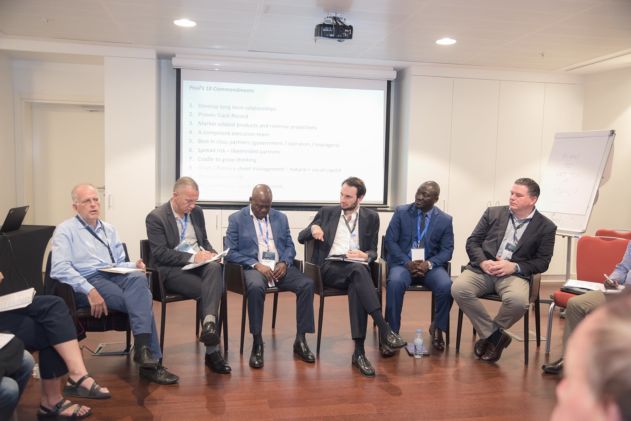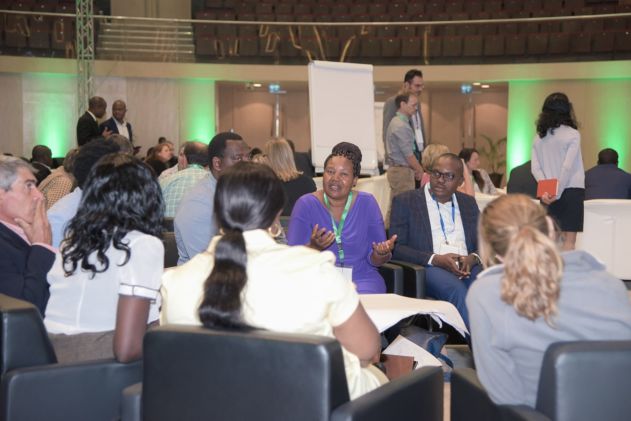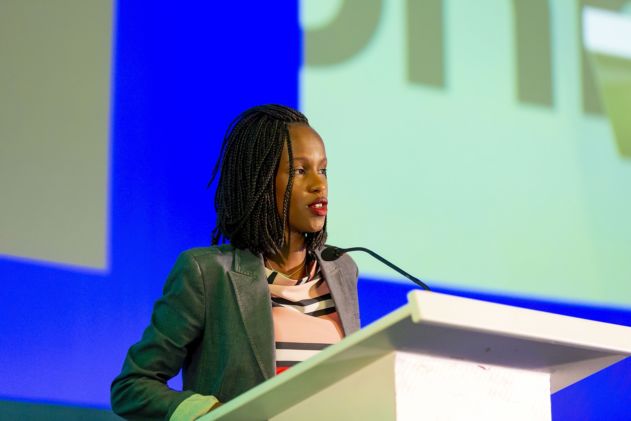Business of Conservation Conference 2019
More than 400 top African and global CEOs, political leaders, technologists, investors, entrepreneurs, and innovative conservationists convened to accelerate the transformation of African conservation from a niche cause to a high economic growth asset for the continent. The Business of Conservation Conference paved the way for transforming conservation from a diminishing resource to a high-growth sector driven by environmental investing.
“What will it take to re-imagine a world where wildlife is not scarce but abundant? Maybe we should change the name ‘conservation’ to environmental investment.” said Fred Swaniker in his opening remarks “Conservation is Africa’s Trojan horse. Investors might come to experience our wildlife but they stay for many other things.”
He laid the context for how BCC was created to help accelerate the transformation by kickstarting the three defining characteristics of high-growth sectors.
- Creating an enabling environment through policies and leadership:
There is no better way to gain perspective on enabling conservation than to hear from leaders who have contributed to creating the environments needed for conservation to thrive. BCC 2019 was honored to have the Honorable Prime Minister of Rwanda, Édouard Ngirente, delivering the welcoming remarks. He emphasized the importance of Rwanda’s role in carrying the conversation of making conservation a growth industry by declaring:
“Rwanda is not new to conservation and protection of heritage, We want to ensure no one is left behind”
Attendees also had the opportunity to learn from the incredible experiences of H.E Hailemariam Desalegn, former Prime Minister of Ethiopia; the Hon. Minister Dr. Vincent Biruta, Minister of Environment, Rwanda; Paulo Gomes, Founder, Chairman, and CEO of Constelor Investment Holdings; and Helen Gichohi, Ambassador for Conservation in Africa at Fauna & Flora International, and heard their perspectives on what it would take to enable conservation through policy.
Other sessions that explored this growth factor included “In the shoes of a policymaker” an experiential that put attendees through the paces of applying knowledge shared from world leaders earlier in the day.
- Magnetic appeal to young and bright talent:
This year’s BCC conference helped spotlight conservation as an attractive sector to today’s youngest and brightest talent through a session that showcased insights and challenges from current ALU School of Business Conservation MBA students on what it would take to be part of the new generation of conservation. The highlight of current efforts to foster the future of conservation was the 2019 Women in Conservation awards where eleven female leaders were honored for the challenges overcome and achievements with some of the honorees sharing their inspirational stories.
A critical part of attracting a new generation of talent, including hiring and developing female leaders. In recognition of this, we awarded eleven female leaders as 2019 Women in Conservation honorees. Hearing their stories and the challenges they have overcome to achieve their positions of leadership is motivating.
It was truly an event that showcased the impact of dynamic talent featuring remarks from Belise Kariza, Rwanda’s Chief Tourism officer and a keynote speech from this year’s Jennifer Oppenheimer Memorial Lecture honoree Vera Songwe, Executive Secretary of the UN Economic Commission for Africa. Vera Songwe led a thoughtful discussion around the mega conservation challenges Africa faces and the opportunities to mitigate those threats.
- Economic engine, BCC helped jumpstart the financial viability of environmental investing for both communities and investors by showcasing African conservation as an Asset
André Hoffmann, MAVA Foundation President, delivered an inspiring keynote emphasizing the need for conservation organizations to leverage more business-centric measures and highlight the need for exceptional leadership as we embark on the transformation of conservation into a growth sector.
Other engaging sessions which explored various aspects of the financial sustainability growth factor included The Leopard’s Cove where several young African entrepreneurs pitched for seed money to build or scale their venture with varying degrees of success but priceless advice and connections with four of the world’s top impact investors.
BBC Surprise Moment:
There was a surprise Q&A with global fashion superstar Naomi Campbell. She was also a part of the Kwita Izina ceremony and she shared her passion for Africa and insights on the changes that need to happen for the continent to achieve its potential. Her presence also highlighted the new voices in conservation and what it would look like as a growth industry.
As this year’s Business of Conservation Conference concluded, Fred Swaniker recognized this year’s commitment makers – those who have decided to make investments into conservation and the natural environment as a result of the conversations, connections, and new ideas that were forged during the conference.
- Sanjayan, CEO of Conservation International, delivered a compelling closing keynote that captured the themes of the conference. He highlighted innovative business models allowing people around the world to make conservation into a livelihood and incentivising societies to make conservation a priority because, in his words, it is the greatest mechanism for success against Climate change.
Finally, Clare Akamanzi, CEO of the Rwanda Development Board, officially brought the 2019 Business of Conservation Conference to a close. “If you want to know if a conference has been successful, you look at the number of people at the end and compare it to that at the start. If it’s more than a half then it was a success.
